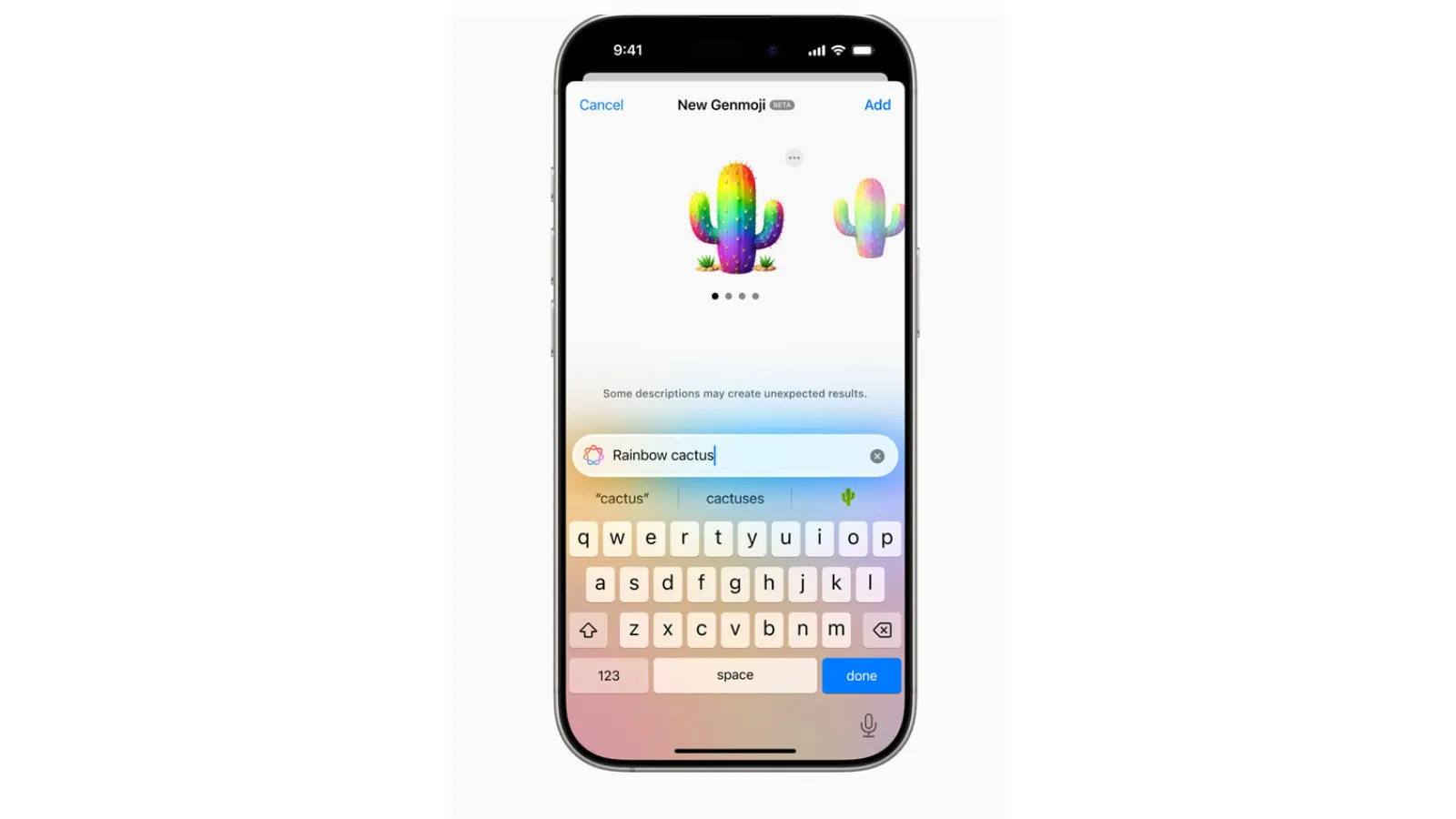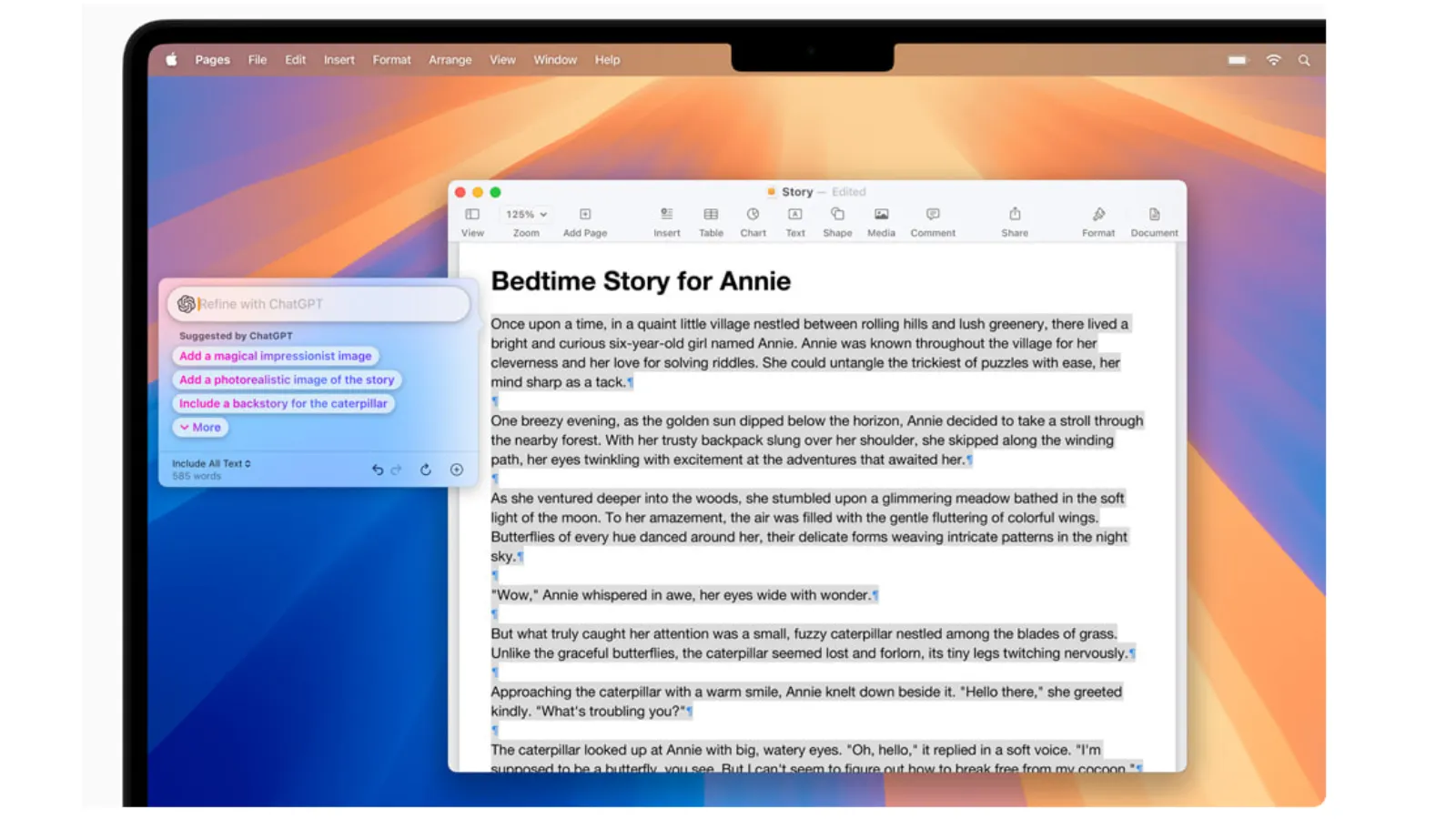
Apple released the most anticipated update to its mobile and desktop operating systems Wednesday, finally delivering a raft of new artificial intelligence features that promise to unlock OpenAI’s cutting-edge technology.
While users got a small taste of “Apple Intelligence” in October, thus far, consumers and critics have been underwhelmed.
The release of iOS 18.2, iPadOS 18.2, and MacOS Sequoia 15.2 introduces several new features, including ChatGPT support for Siri, enhanced camera control, personalized emoji design, and generative image creation.
The new features rolled out today work on iPhone 15 Pro and later; iPad with A17 Pro or M1 and later; and Mac with M1 and later. Here’s a quick rundown of what to expect.
Generative AI lets users create images in Messages. These images can be based on photos in the user's photo library, and offer a variety of themes, including animation and illustrations. Apple says the Image Playground is also accessible via other apps, including Freeform and Keynote.

Now you can create “genmoji”—emoji that you generate via text descriptions, or photos. Unlike traditional emoji, genmoji can be customized with accessories such as hats and glasses, or themes, which can be shared as stickers and, of course, reactions.

Siri finally gets a brain. OpenAI’s popular chatbot, ChatGPT, will power the assistant without users needing to create an account. Apple announced its partnership with OpenAI in June.
The ChatGPT integration, along with text-based responses, also lets users generate images without having to switch to the ChatGPT iOS app. Using Writing Tools, for instance, users can ask ChatGPT to generate content and add images to the document.

Note that as part of its pro-privacy stance (see below), Apple said that requests sent to the chatbot will not be stored or used to train OpenAI’s models.
The iPhone 16's Camera Control is also getting an upgrade via Apple Intelligence, with instant object and text recognition. With Visual Intelligence, iPhone 16 can copy or translate text, detect contacts like phone numbers and email addresses, and search Google to see where they can buy an item they see—or even use ChatGPT for explanations.
Users can now find content by describing moods, genres, actors, or even decades, making discovery more intuitive.
Apple highlighted its commitment to user privacy, including that for users taking advantage of the new ChatGPT integration, their IP addresses are obscured to prevent their sessions from being linked together. However, Apple noted that for users who connect their ChatGPT Plus/Pro accounts, OpenAI’s data-use policies would apply.
For users who use Apple’s Private Cloud Compute, user data is used only to fulfill requests and is never stored or shared. Apple has given independent experts access to the server code on Apple silicon to ensure transparency and uphold privacy.
Apple is also upgrading search using Safari, with URLs automatically being upgraded to HTTPS whenever possible, securing users’ online activity.
Edited by Andrew Hayward